RITA2020 POSTER PRESENTATIONS
PP056 Validation of two tests to rabies virus neutralizing antibody evaluation: precision parameter to simplified fluorescence inhibition microtest (SFIMT) and rapid fluorescent focus inhibition test (RFFIT) on microplates
Luciana Botelho Chaves
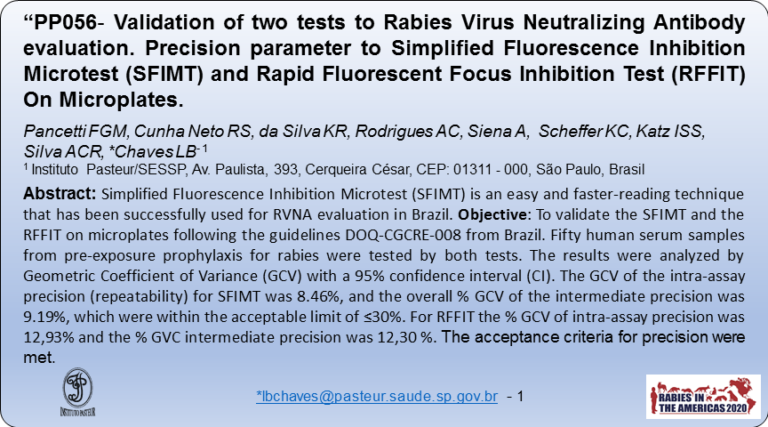
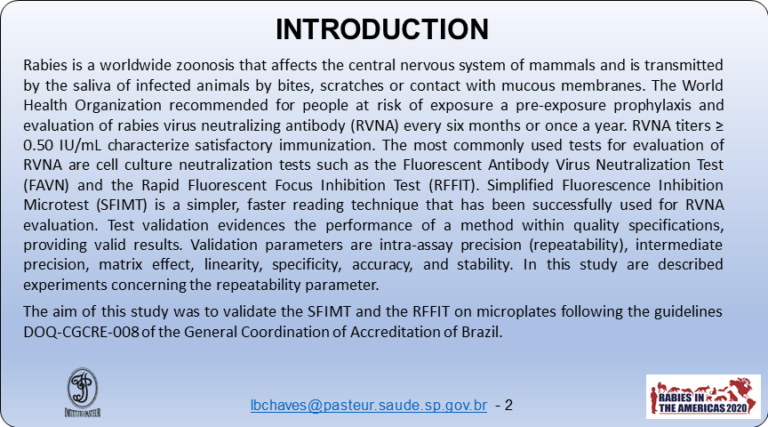
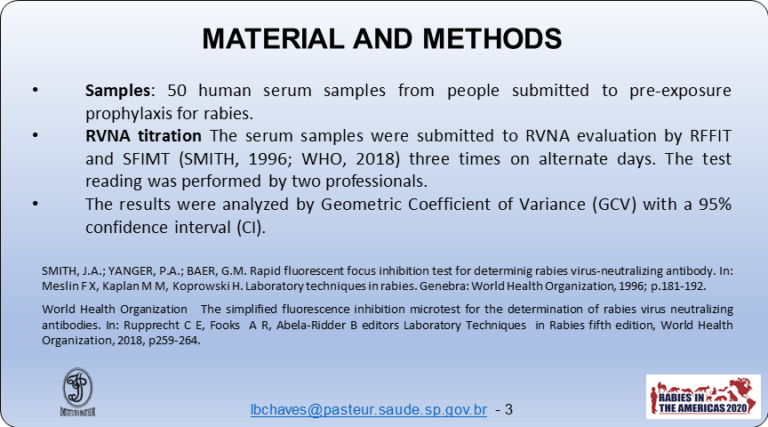
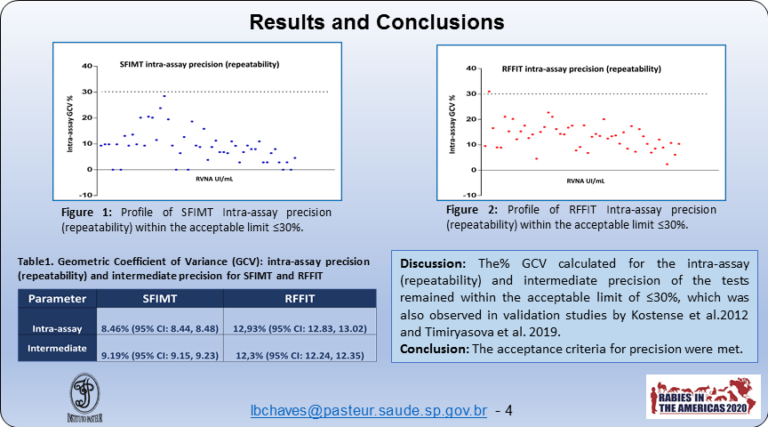
PP057 Impact of the COVID-19 pandemic on laboratory of rabies diagnosis in São Paulo State, Brazil
Micheli Cocchi
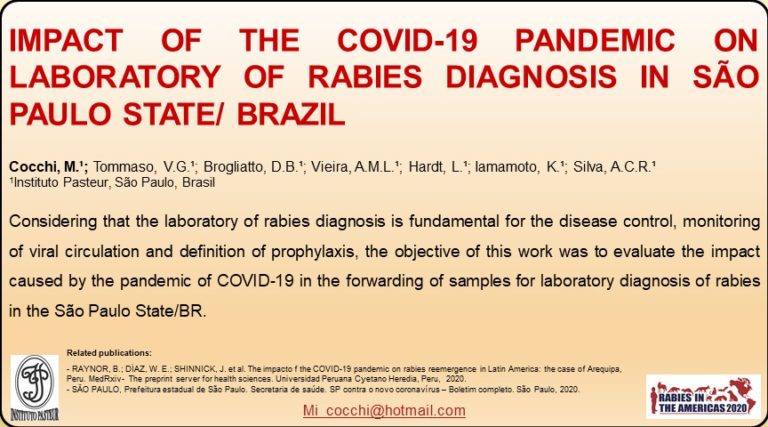
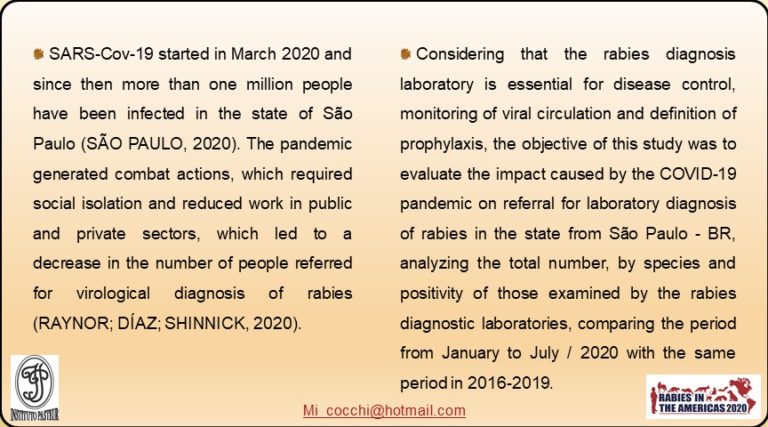
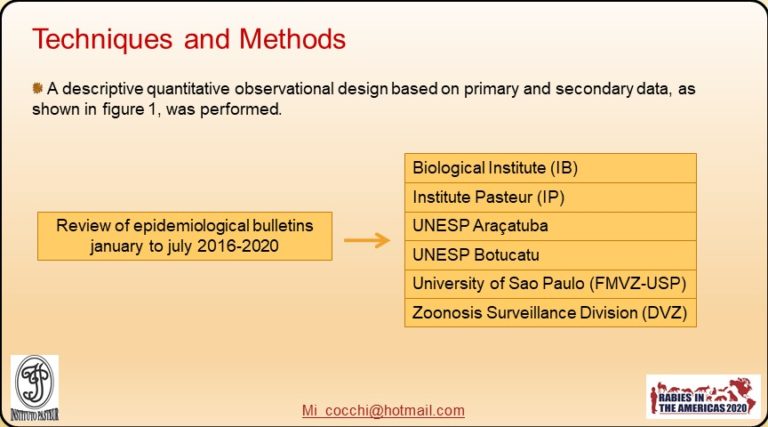
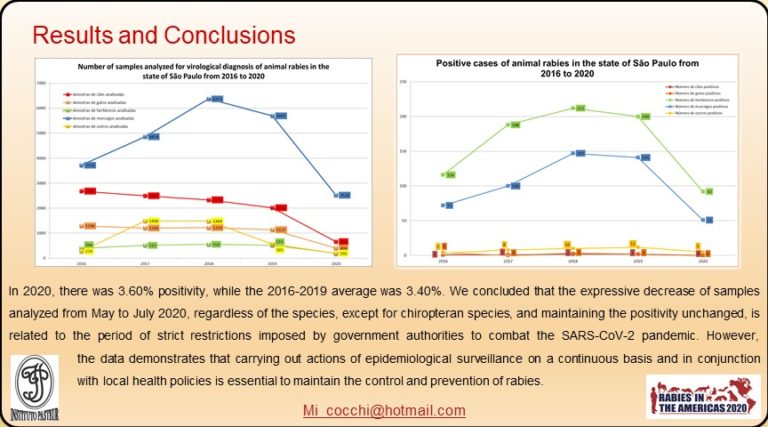
PP058 Rabies cases reported in Paraguay during 2019-2020
Mirtha Colmán
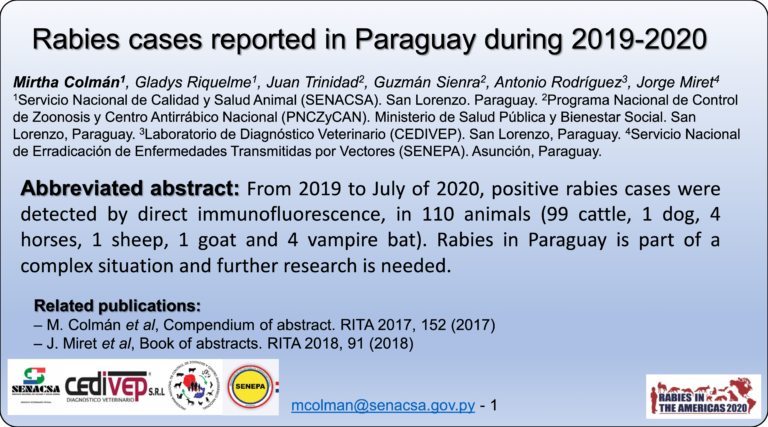
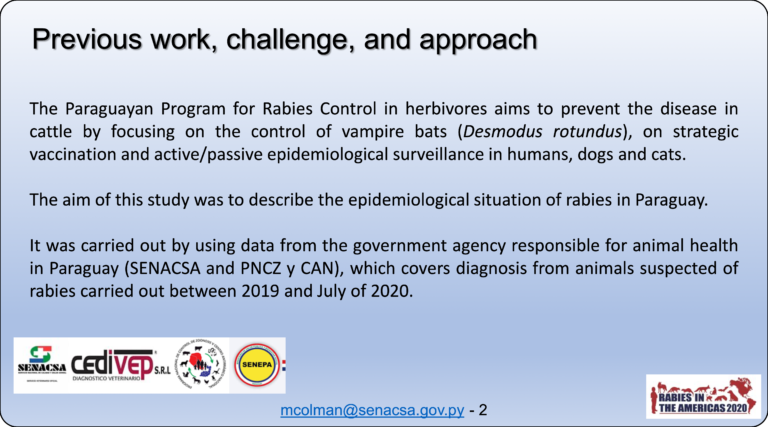
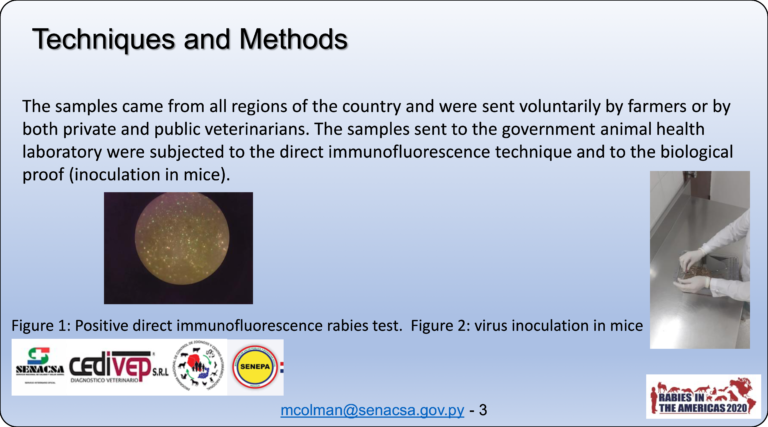
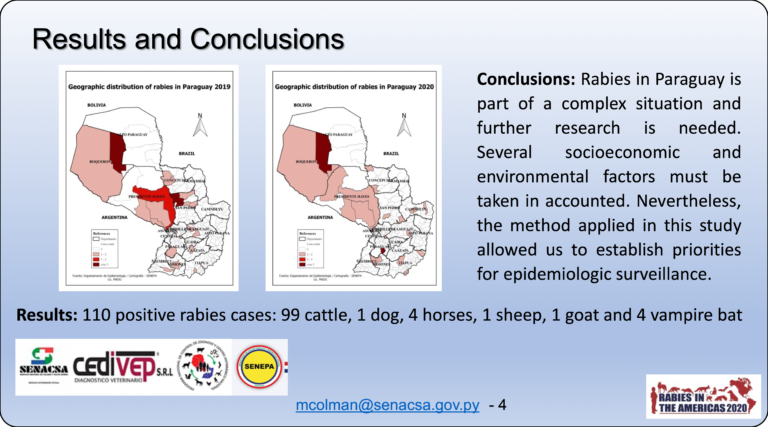
PP059 An inter-laboratory trial as a tool to increase rabies diagnostic capabilities of Sub-Saharan African Veterinary laboratories
Morgane Gourlaouen
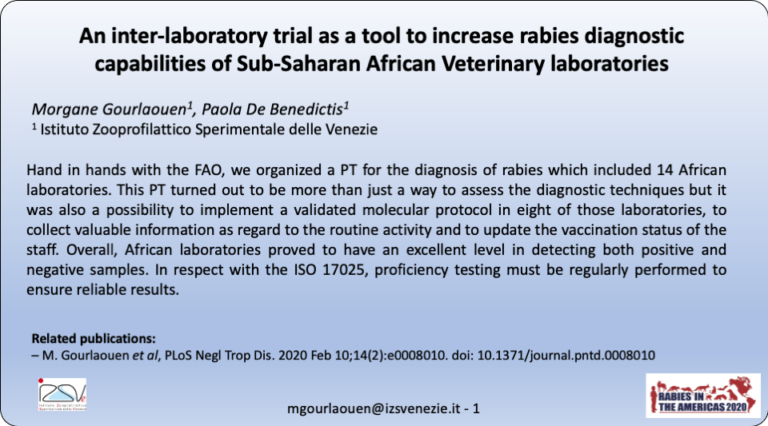
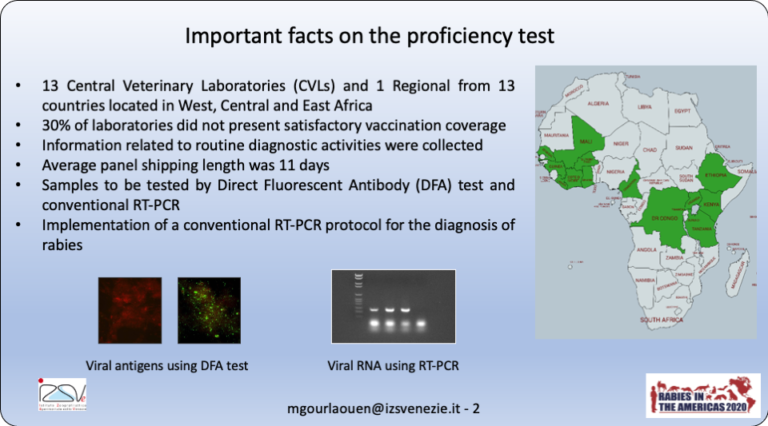
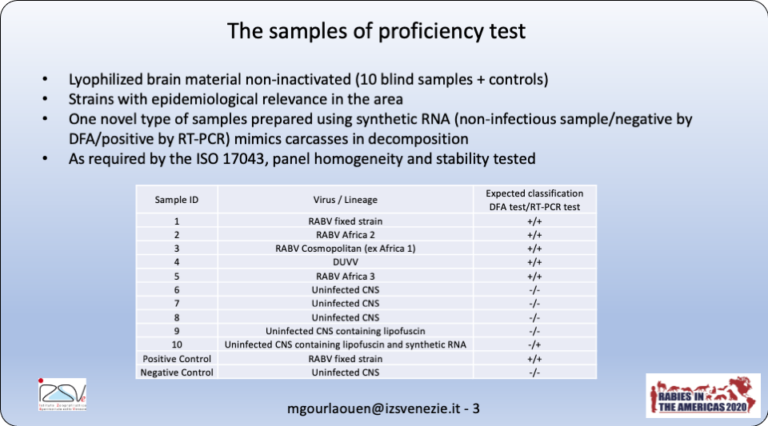
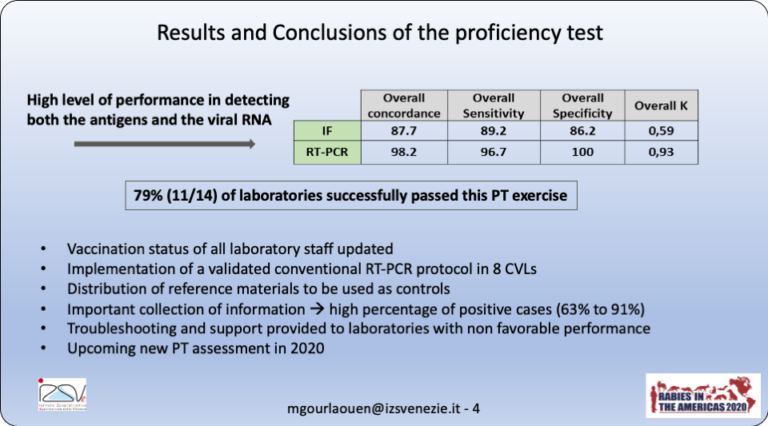
PP060 Rabies virus variant typing by real-time PCR in the United States
Scott Brunt
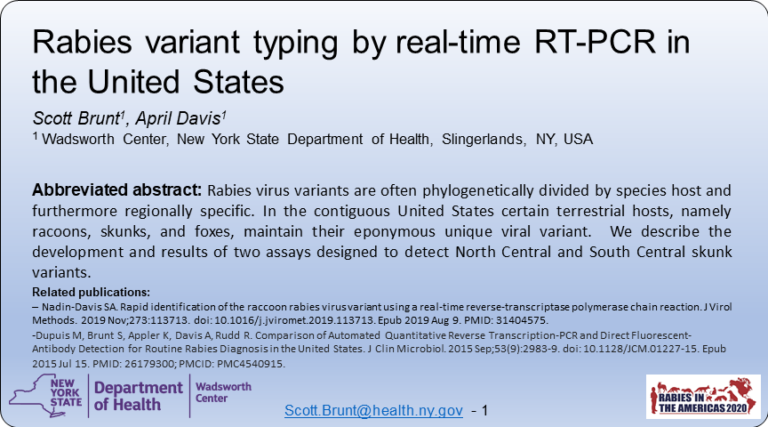
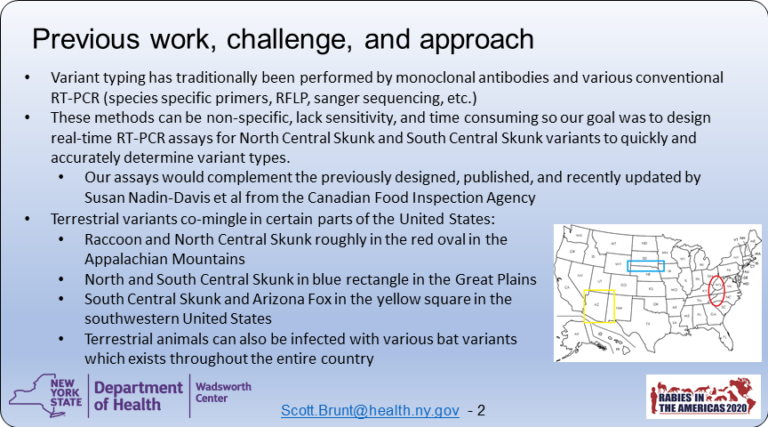
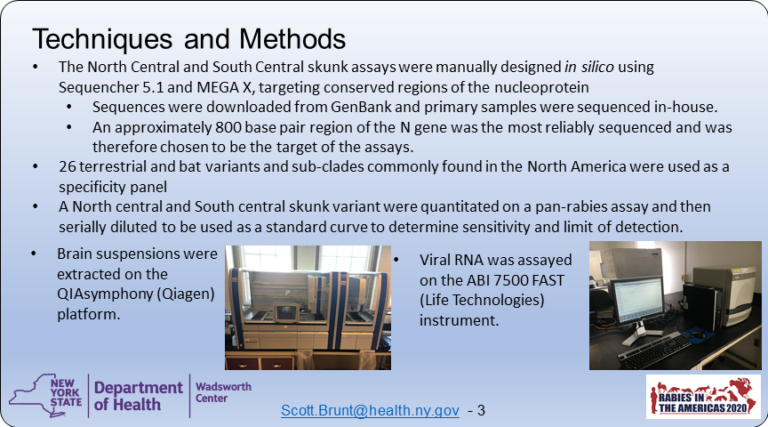
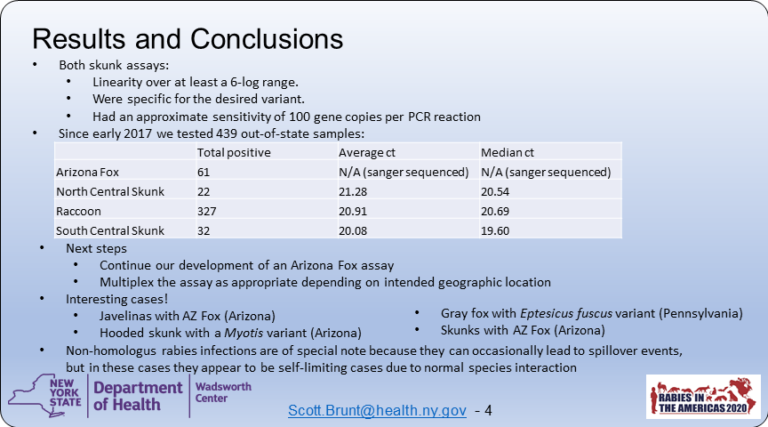
PP061 Techniques for diagnosing human and animal rabies
Thomas Rosa Menegazzi
PP062 Study of herbivore rabies diagnoses by dFAT test with monoclonal and polyclonal antibodies
Vitoria Bueno Vilela Silveira
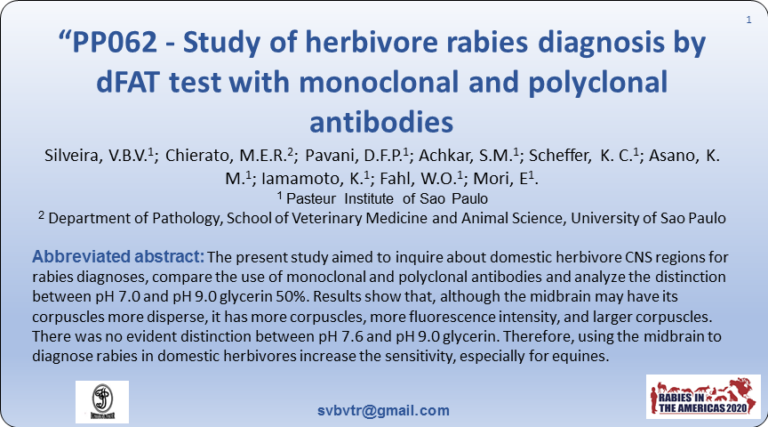
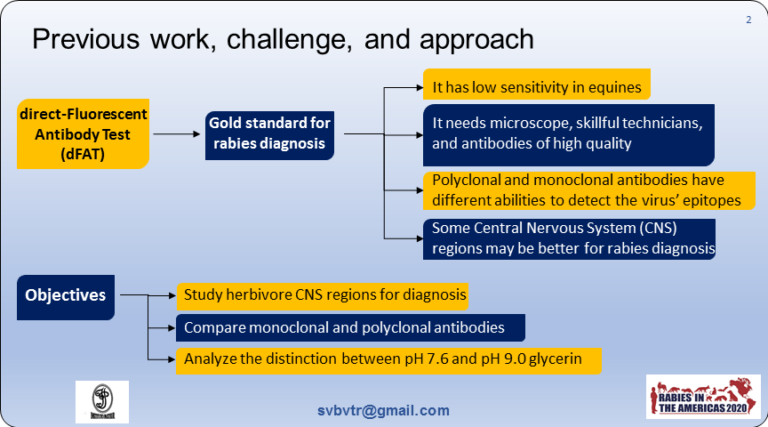
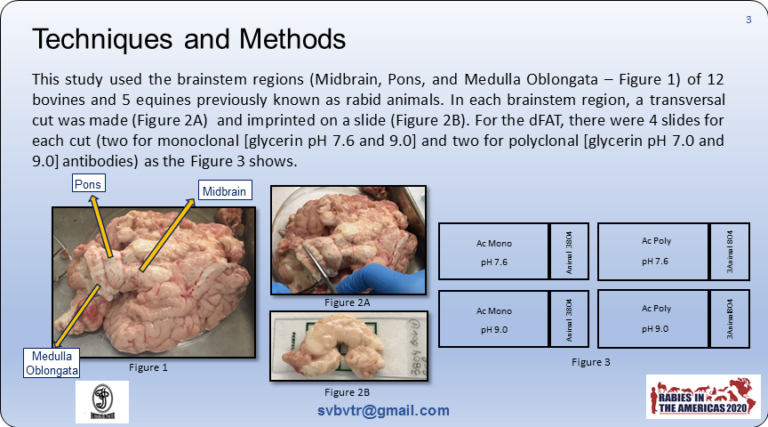
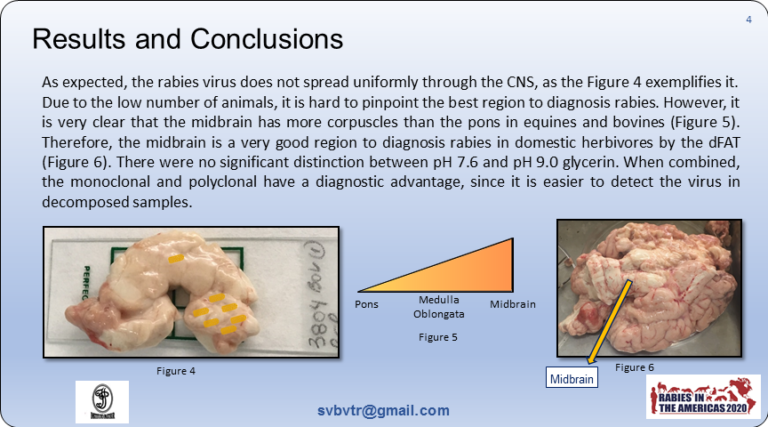
PP063 Use of centrifugation, clarification and ultracentrifugation methods in the preparation of central nervous system samples of horses for the rabies tissue culture infection test
Willian de Oliveira Fahl
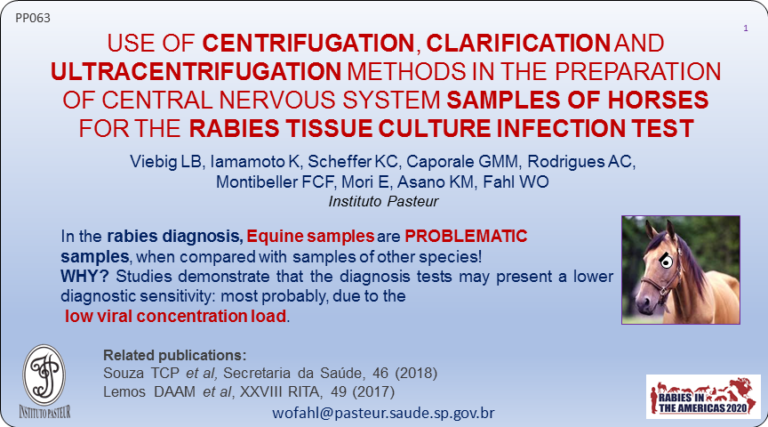
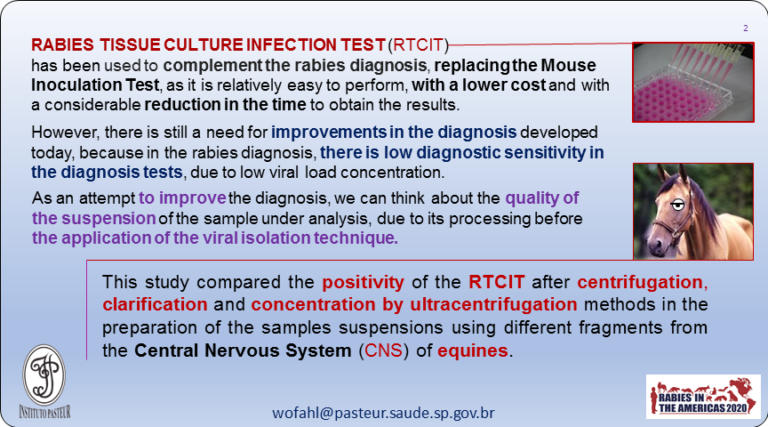
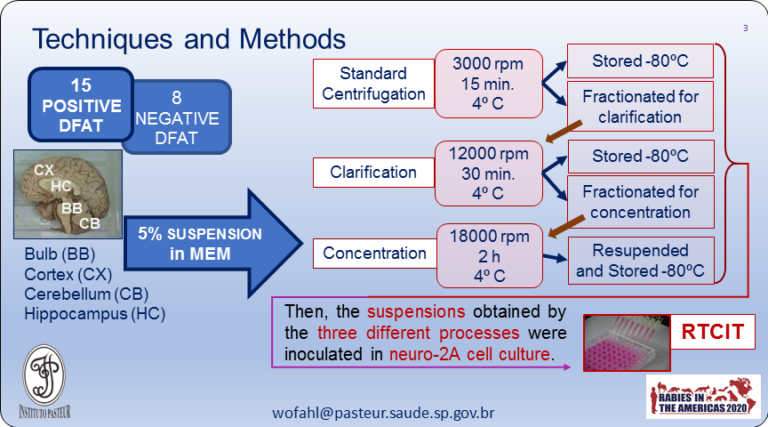
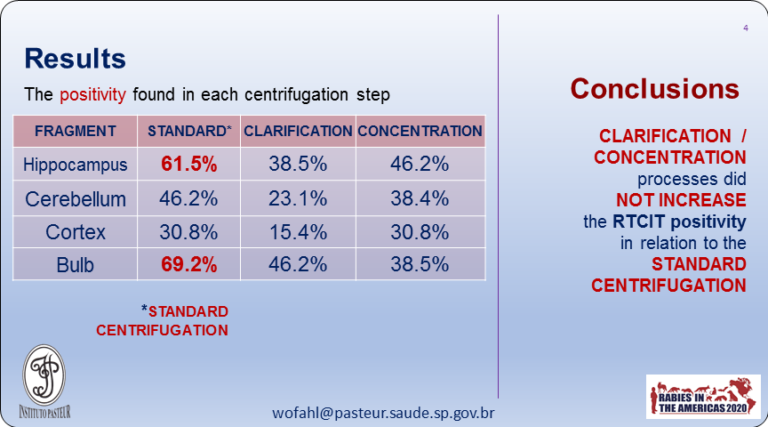
Economics
PP064 Design of risk areas for herbivory anger in Rio Grande do Sul, Brazil
André Alberto Witt
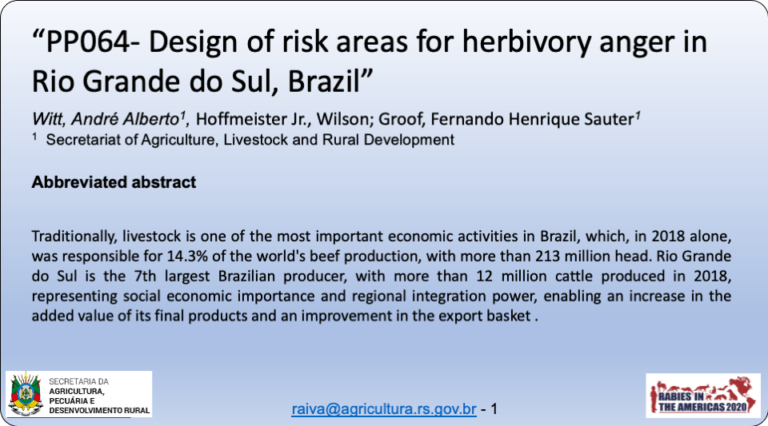
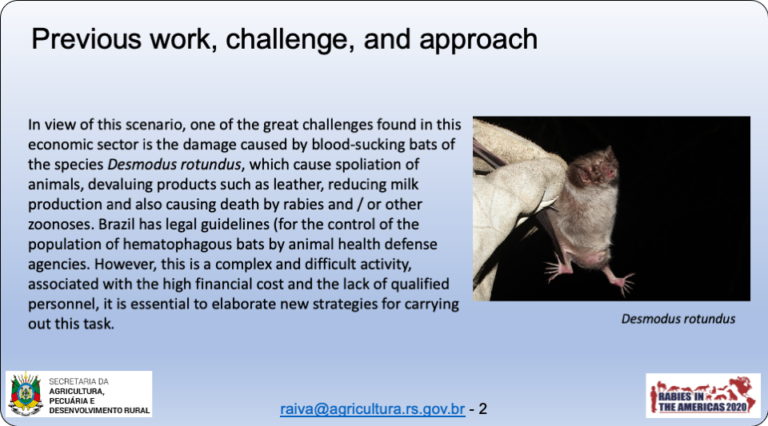
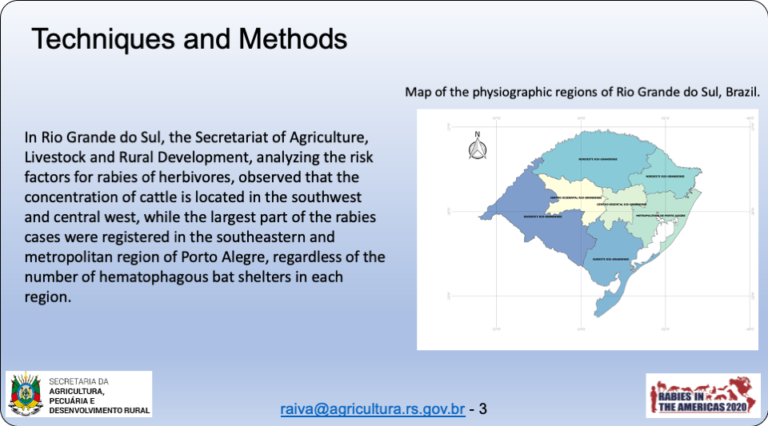
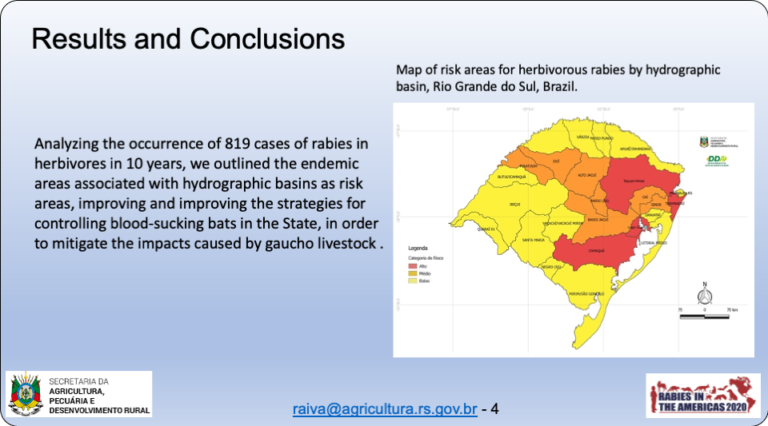
Human Rabies & Prophylaxis
PP065 Anthropization and aggression by bats in humans in a conservation area in the eastern amazon
Ana Paula de Lima e Lima
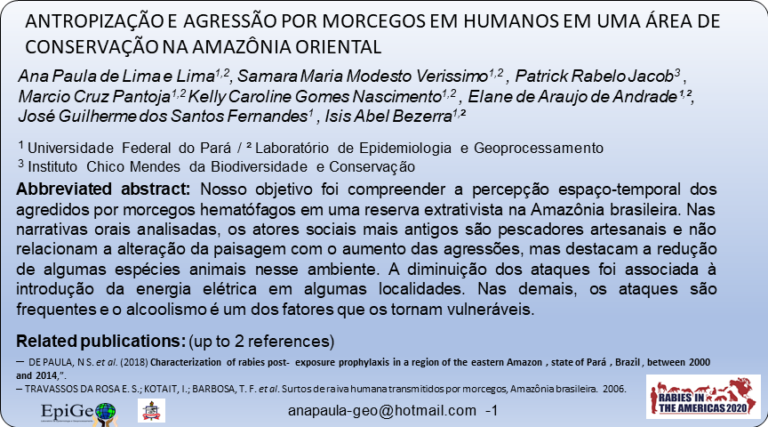
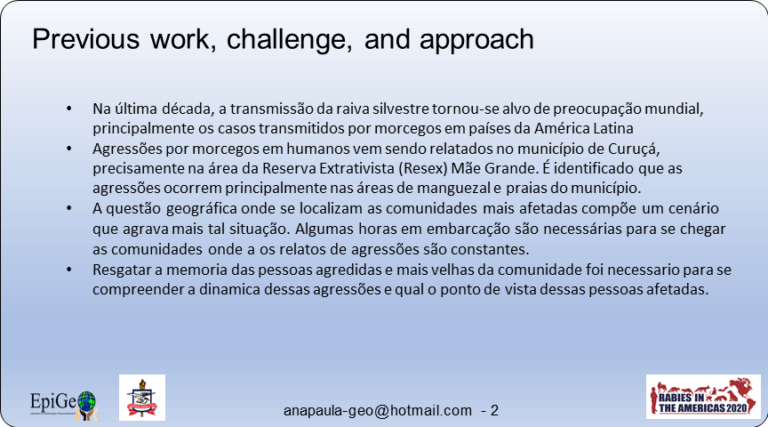
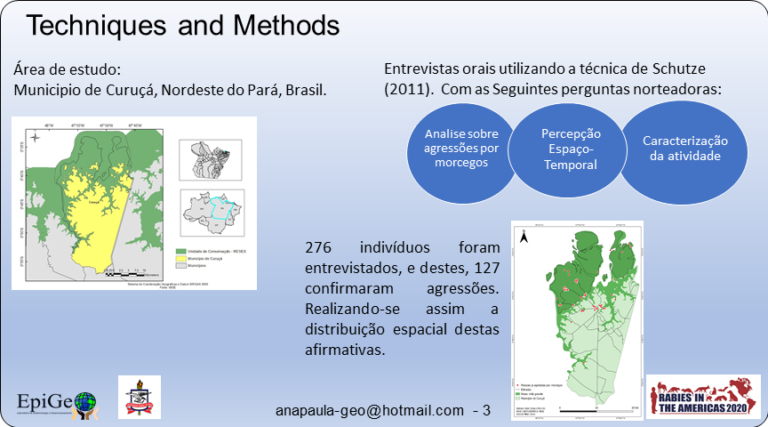
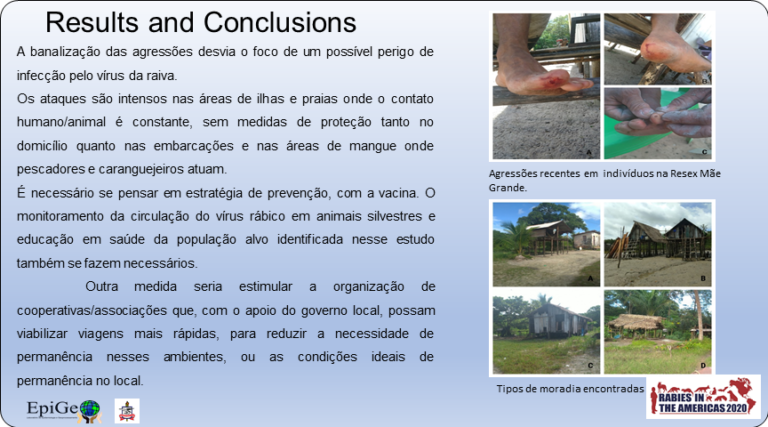
PP066 Profile of anti-rabies treatment in the municipalities of 14th Regional Health Coordination of the Rio Grande do Sul state Health Secretariat, Brazil, 2014-2019
Ana Paula Konzen Riffel
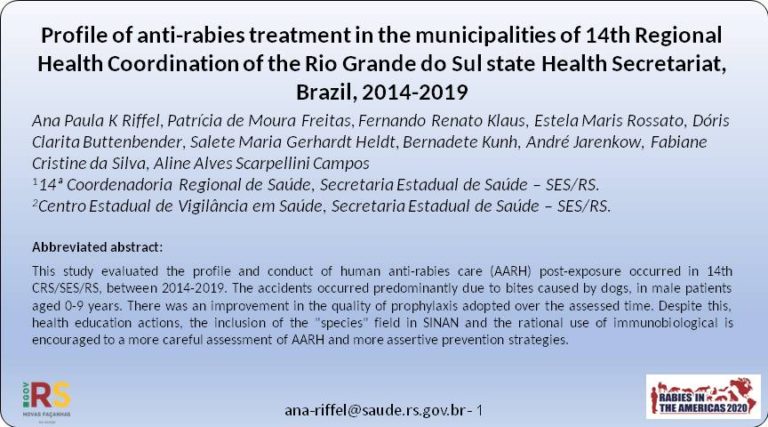
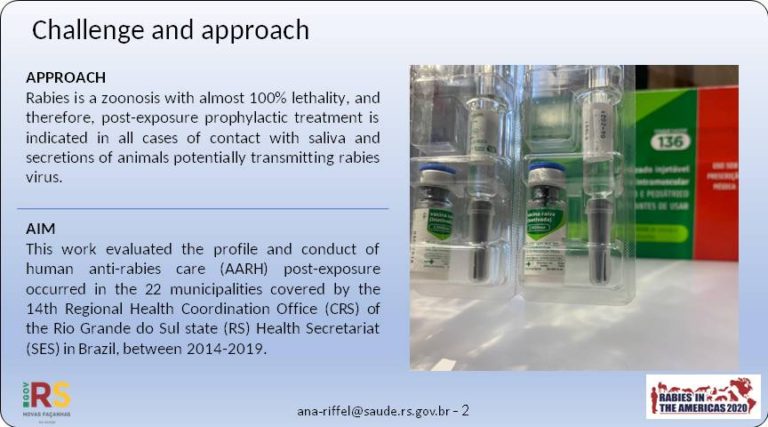
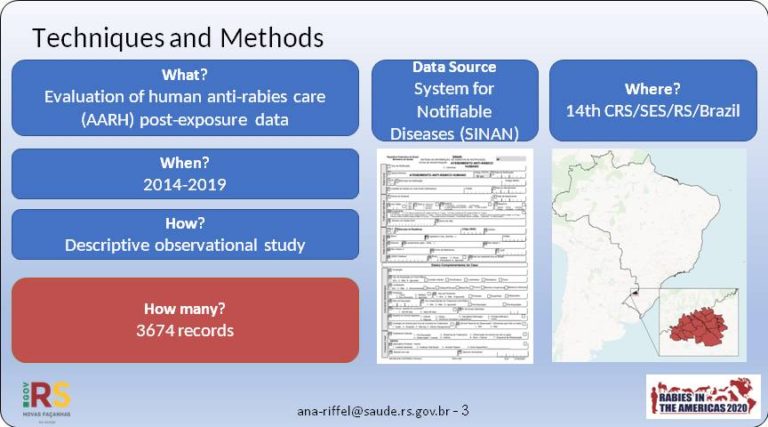
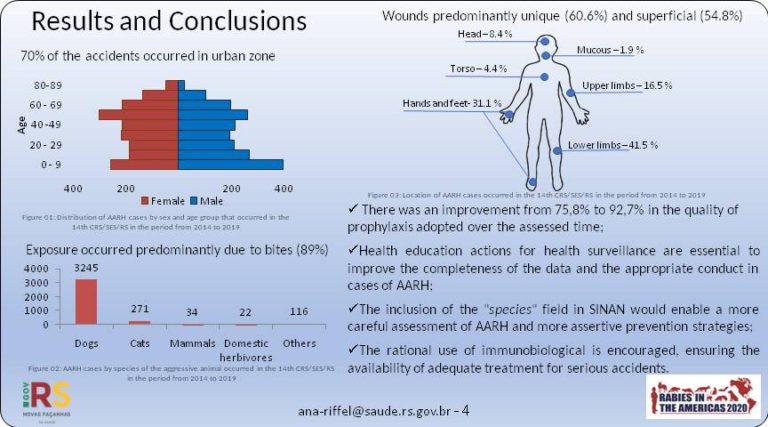
PP067 Human rabies from prevention to treatment: experience report of the development of an online course
Clayton Bernardinelli Gitti
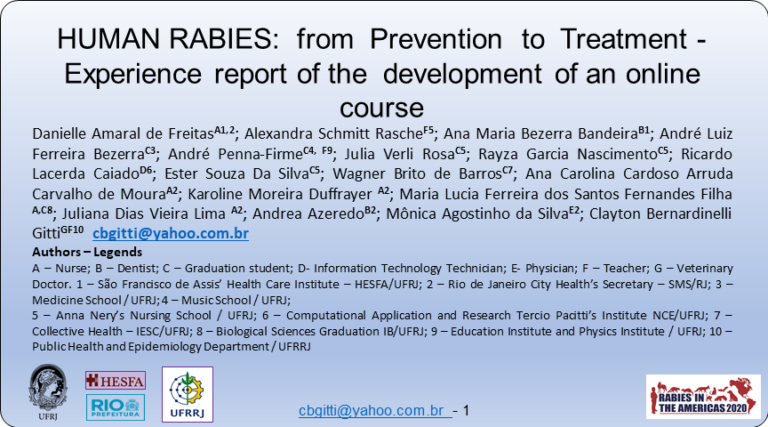
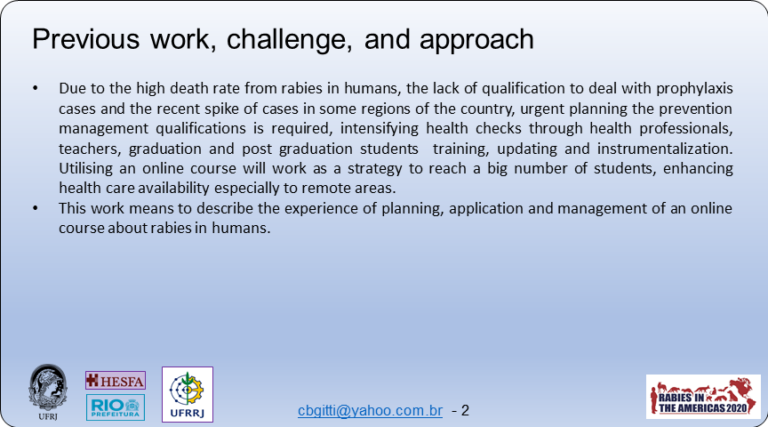
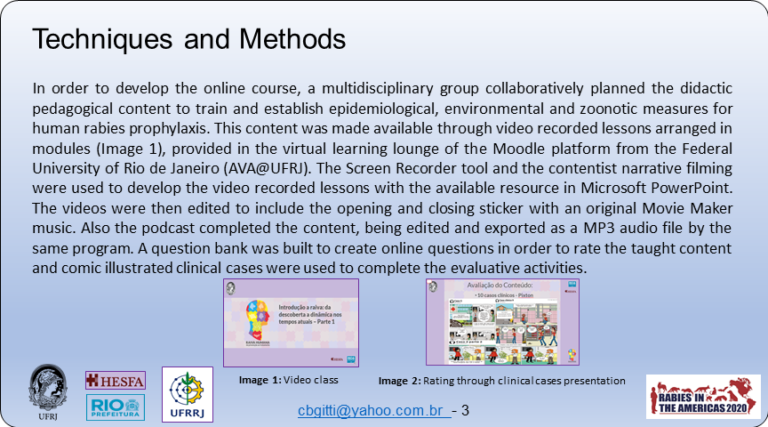
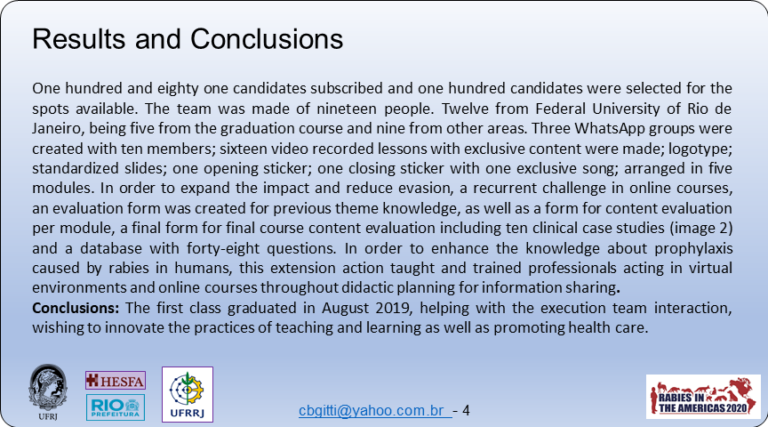
PP068 Epidemiological profile of human antirabic care in municipalities of 4th Regional Health Coordination, Rio Grande do Sul, Brazil
Émerson Salvagni
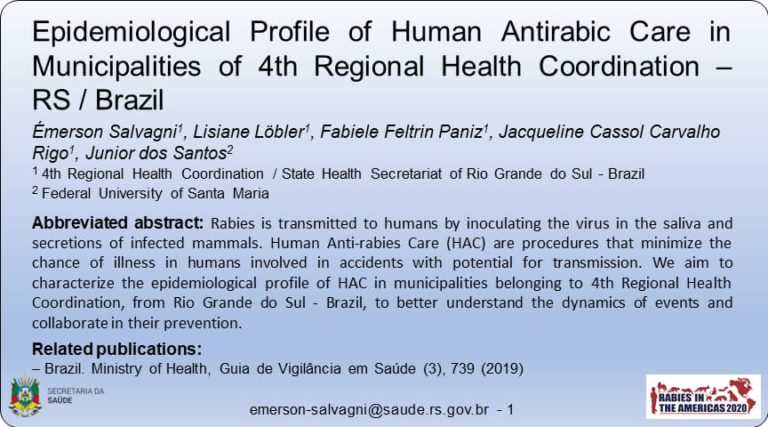
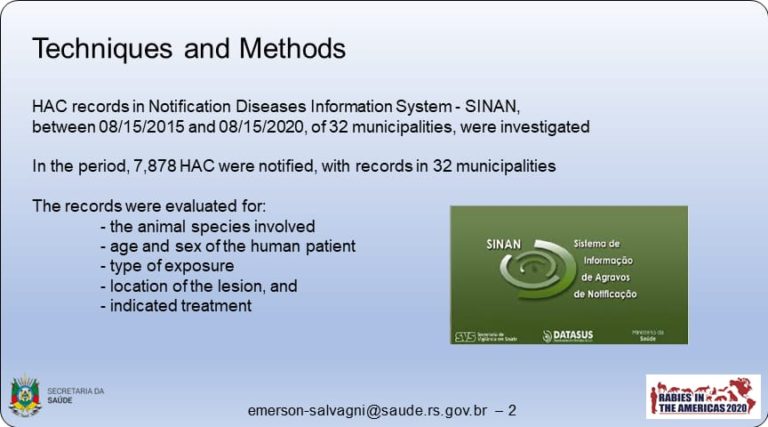
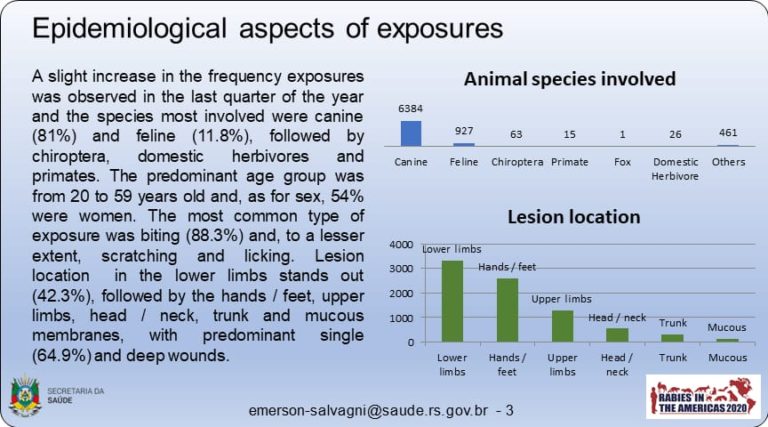
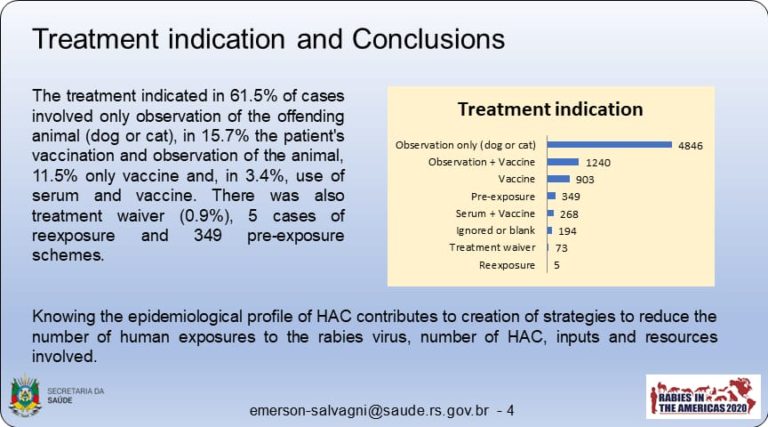
PP069 Characterization of anti-rabies care in the period from 2017 to 2020 in the city of Manaus
Josimara Fernandes de Moura
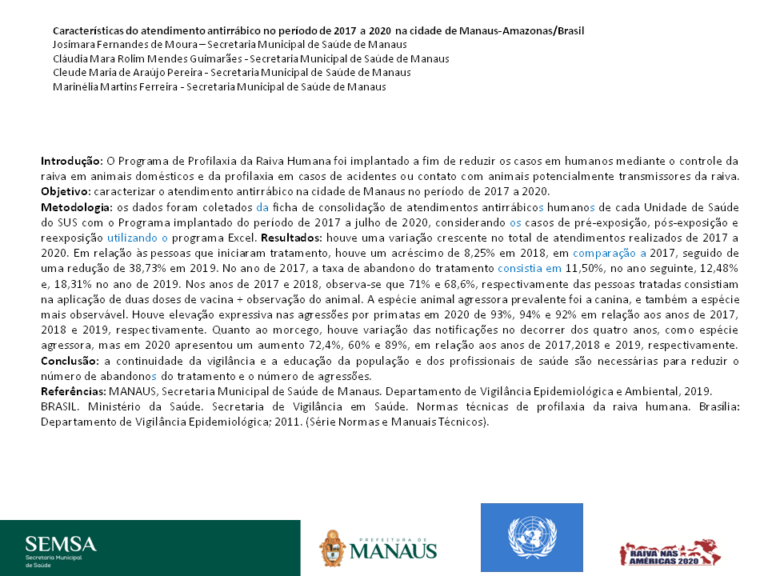
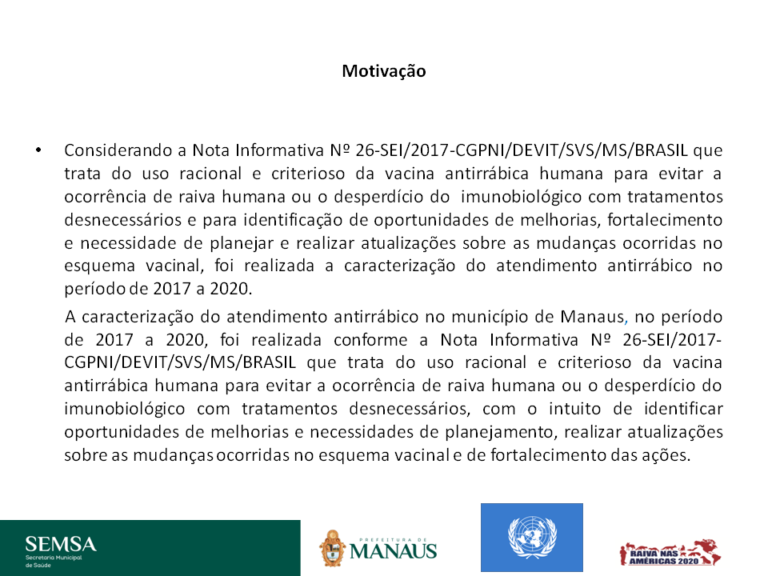
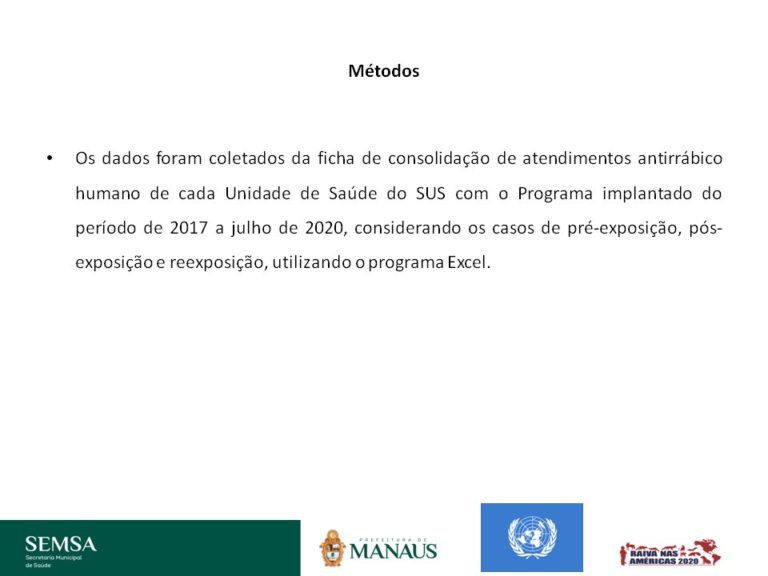
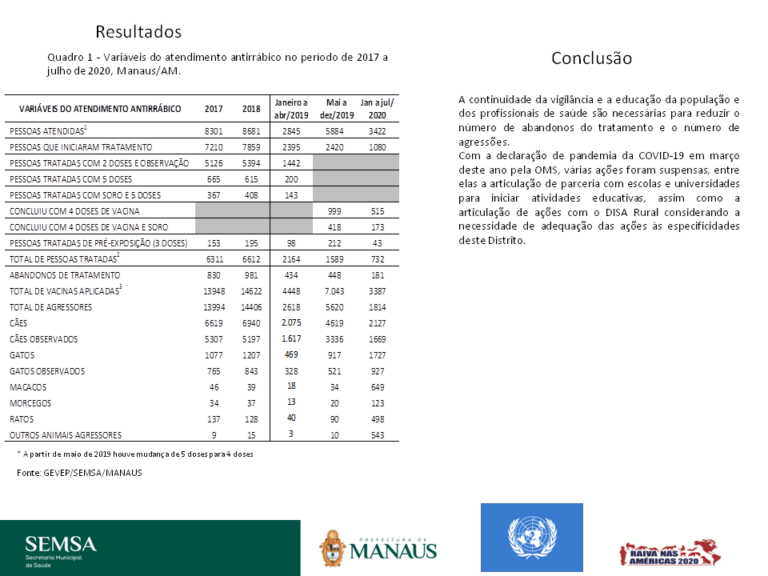
PP070 Description of the medical and anti-rabies care of the person attacked by a dog, cat or other mammal in the Coyoacan health jurisdiction
Juan Manuel Serrano Márquez
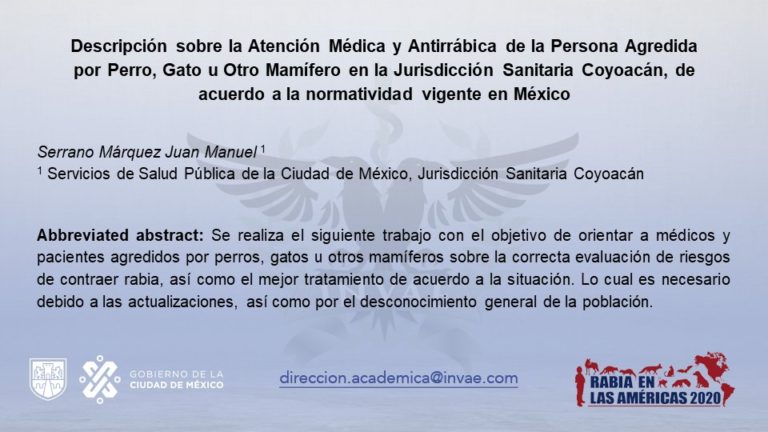
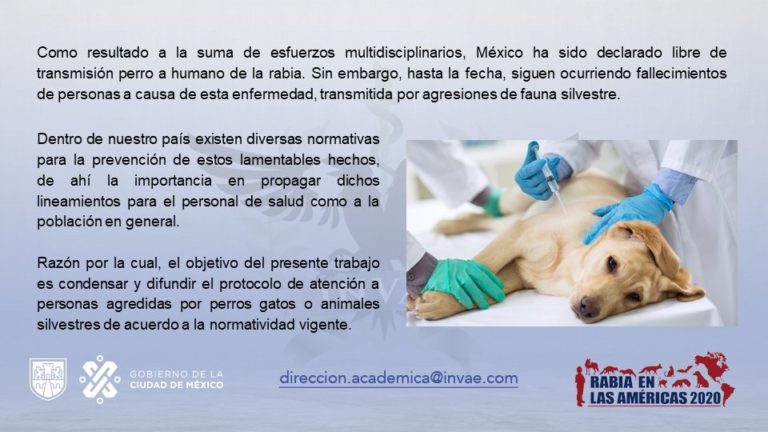
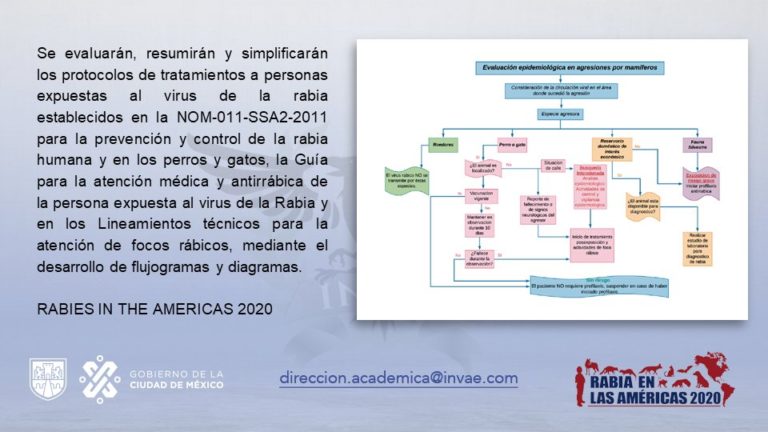
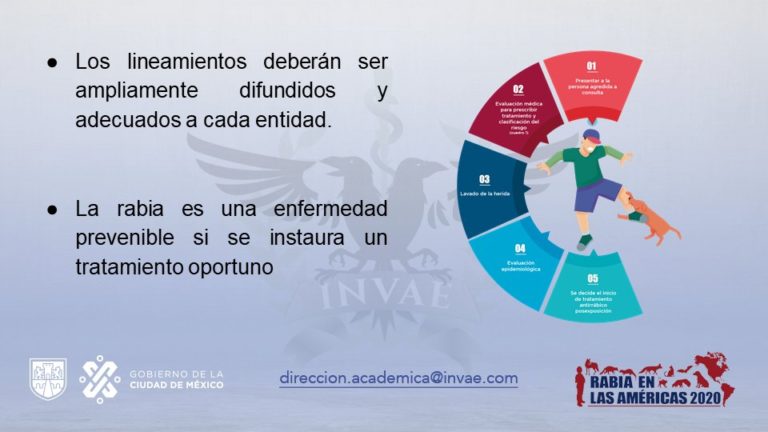
PP071 The role of the veterinarian in public health in the Coyoacan health jurisdiction
Juan Manuel Serrano Márquez
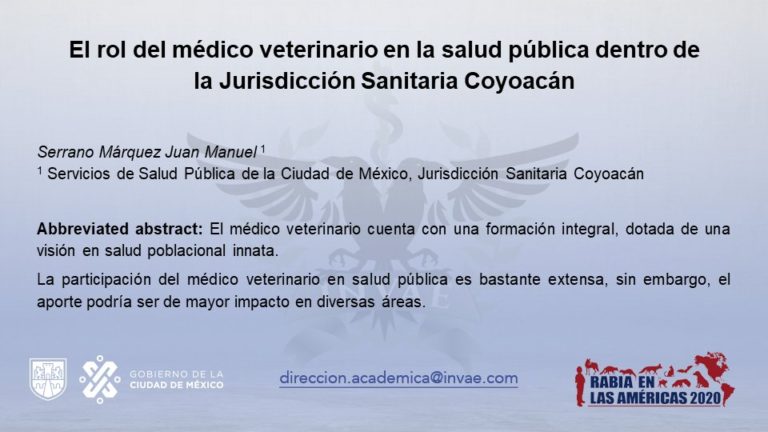
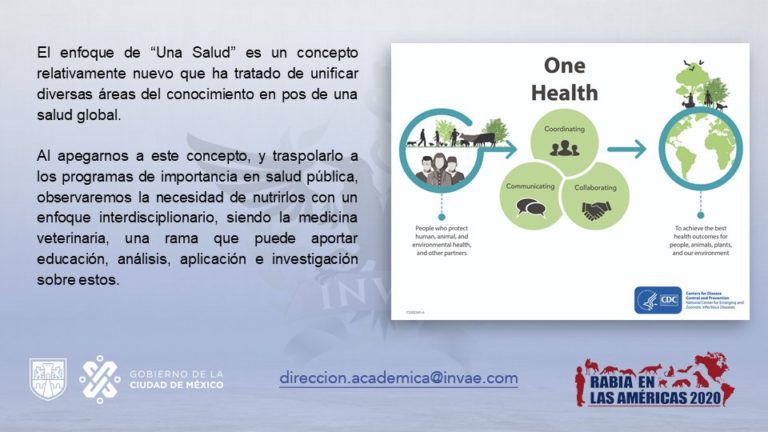
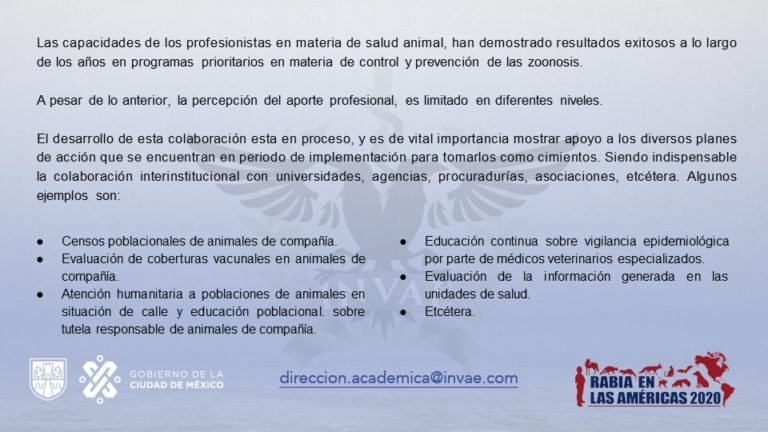
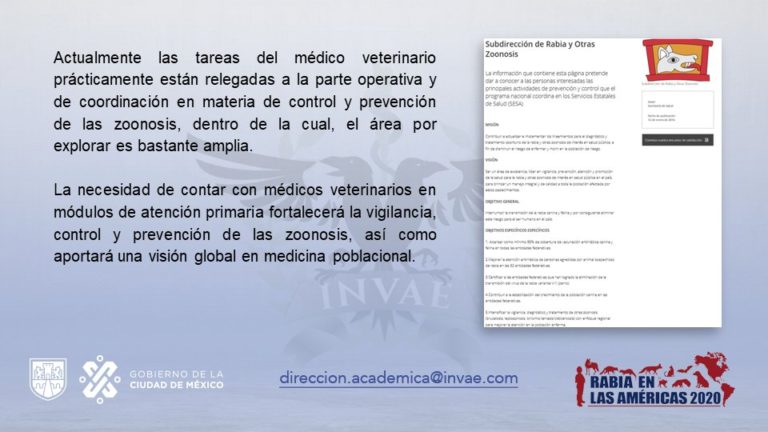
PP072 Unique Health: educational actions preventive of rabies in a ludic context for schools
Juliana de Carvalho Xavier
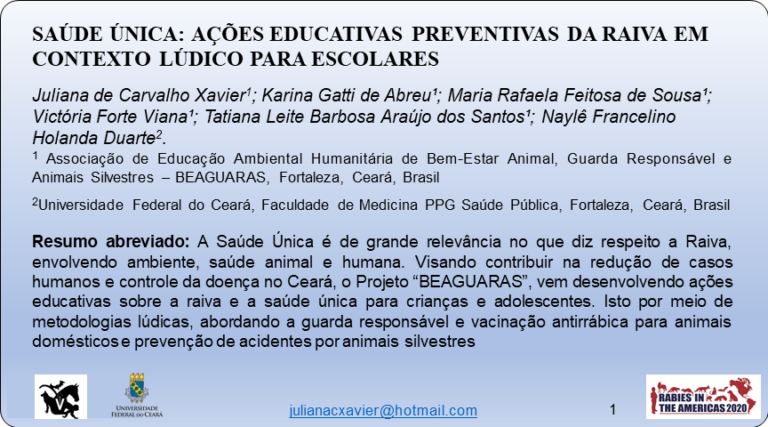
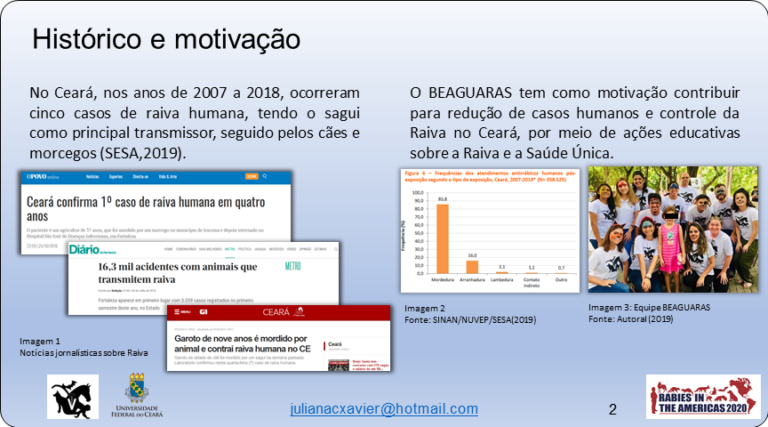
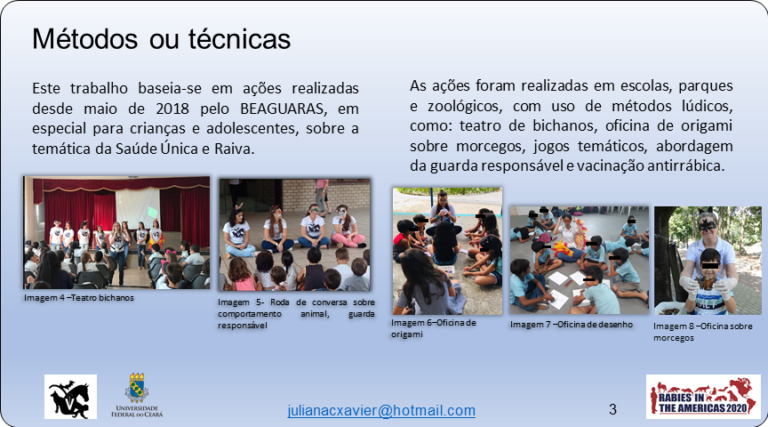
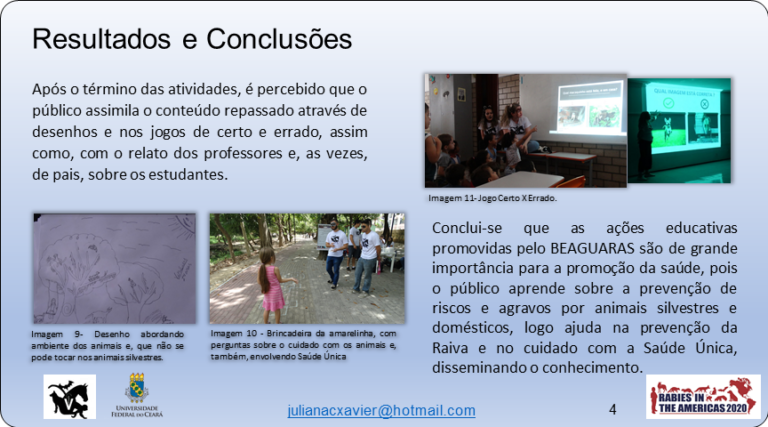
PP073 Human rabies and post-exposure anti-rabies prophylaxis: sociodemographic and epidemiological aspects in the state of Ceará, 2007 to 2019
Kellyn Kessiene
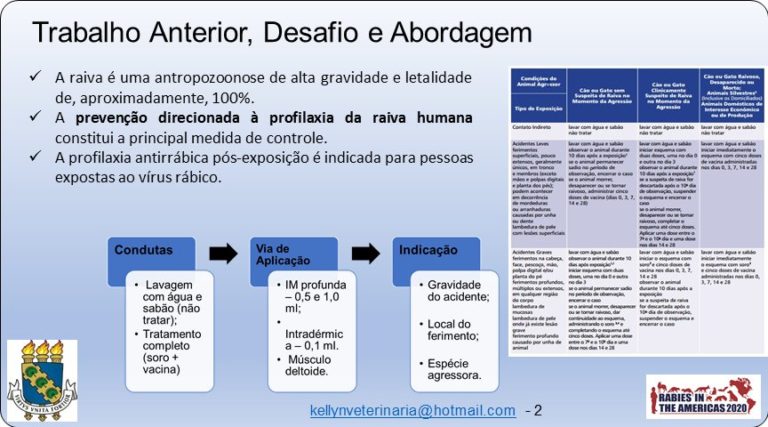
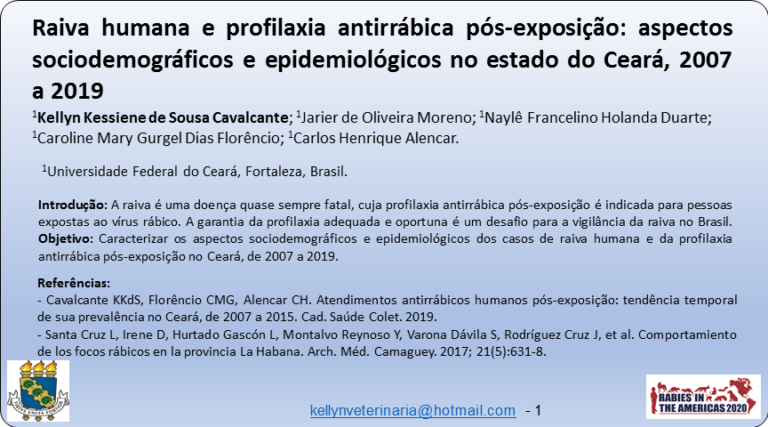
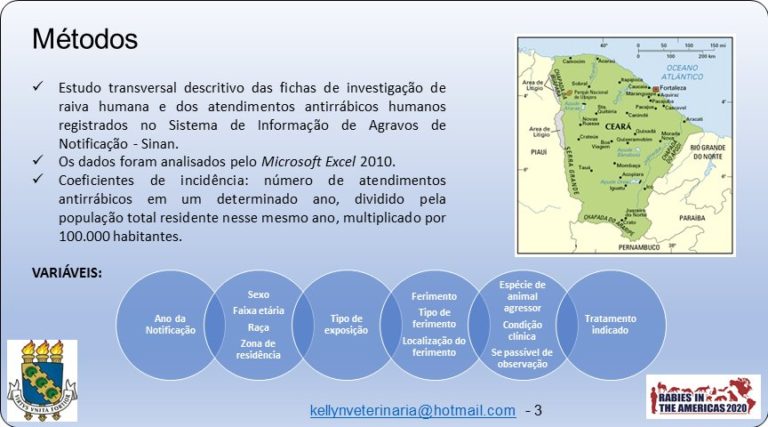
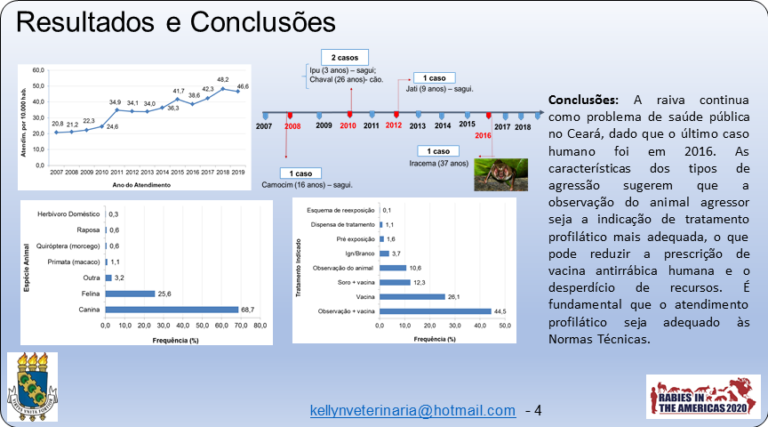
PP074 Health professionals’ knowledge, attitude and practice regarding rabies in an Amazonian community vulnerable to bat aggression
Mateus Borges Silva
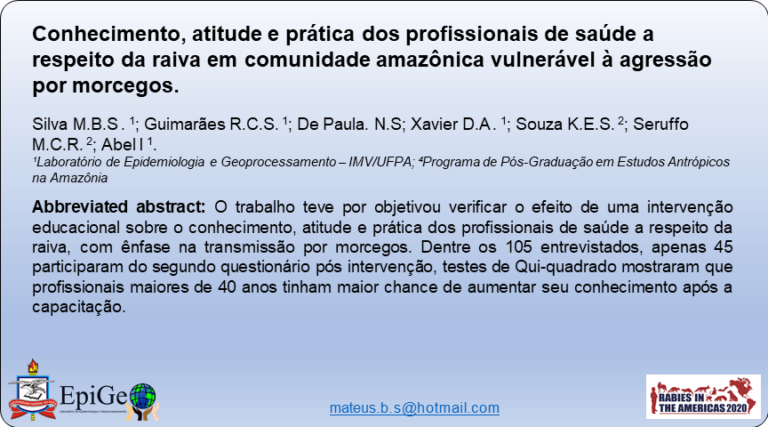
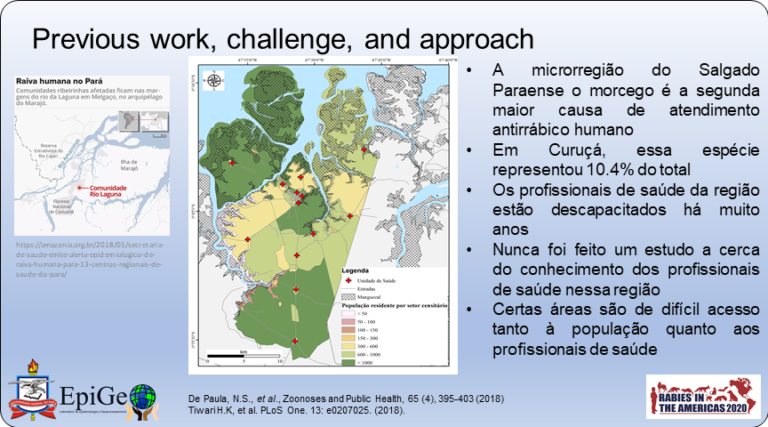
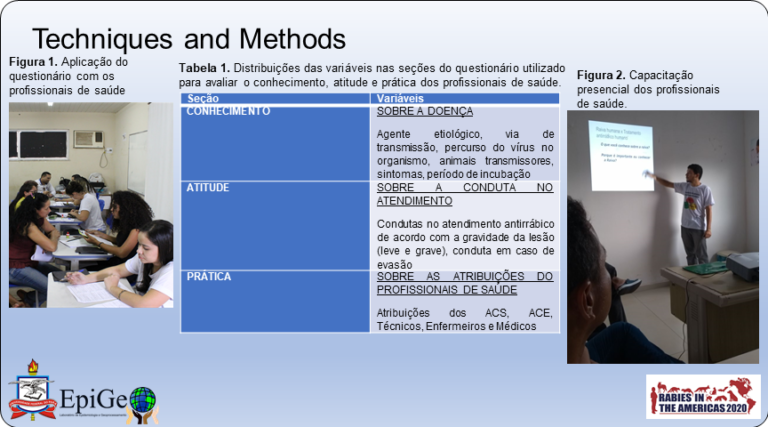
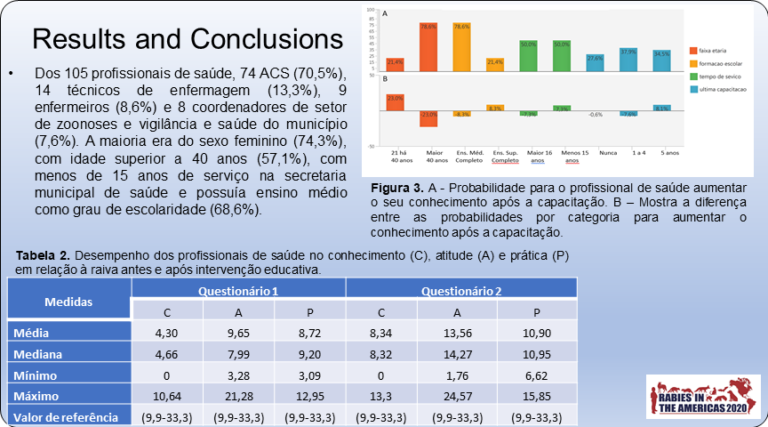
PP075 Rabies virus neutralizing antibodies in a population exposed to bat bites in an extractive reserve, Eastern Amazon, Pará, Brazil
Nailde de Paula Silva
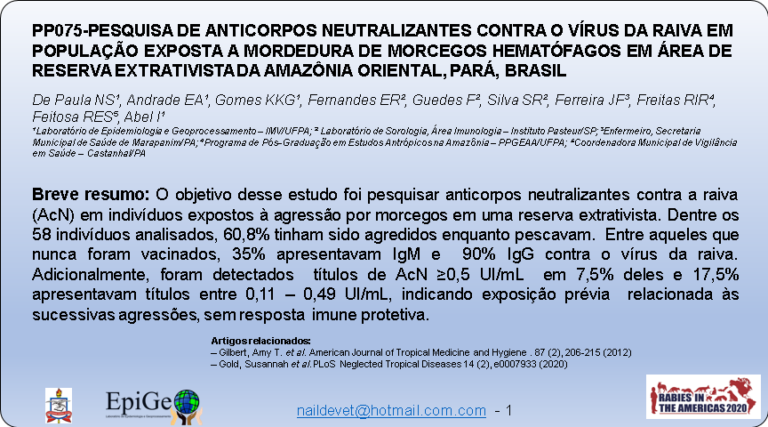
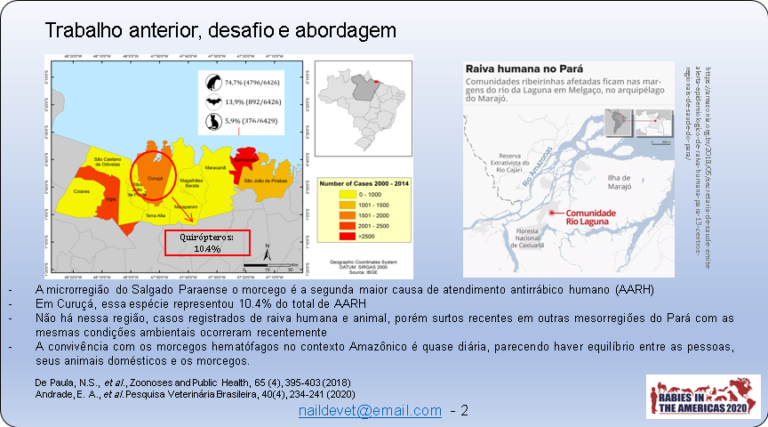
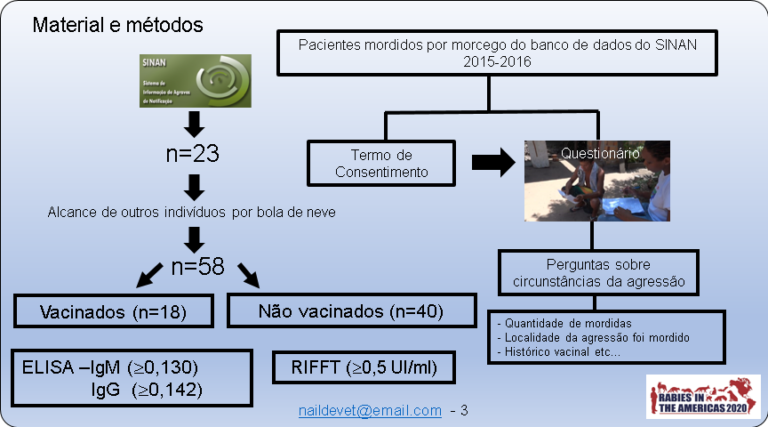
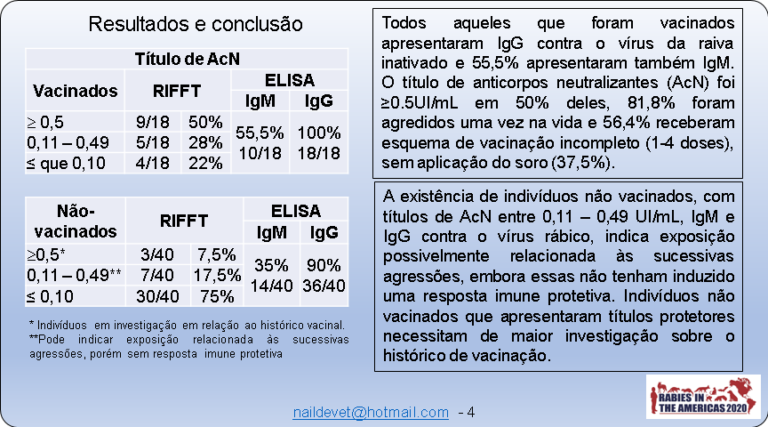
PP076 Human rabies cases in Brazil: situational diagnosis from 2007 to 2019
Nathalia Alves Castro do Amaral
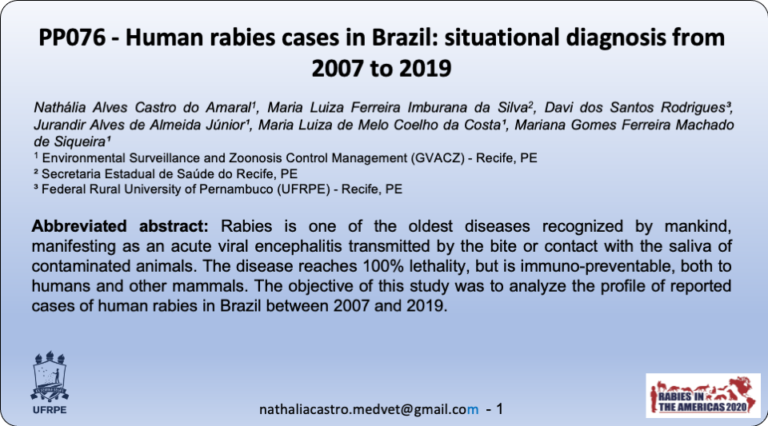
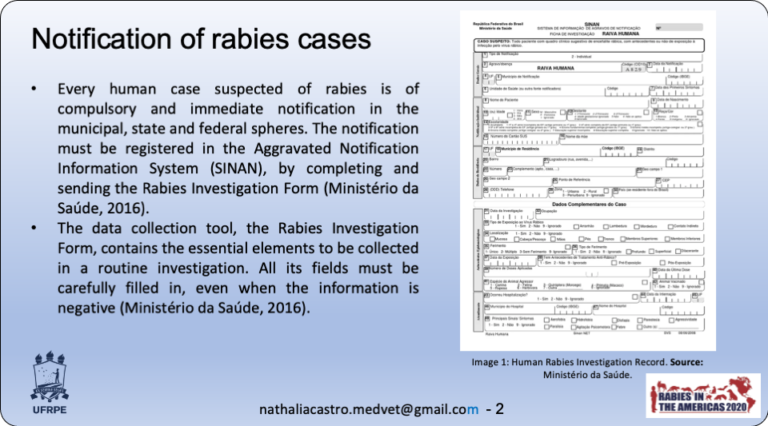
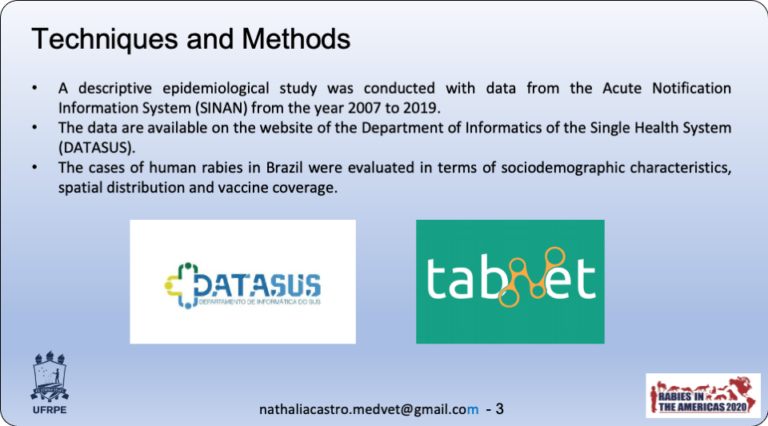
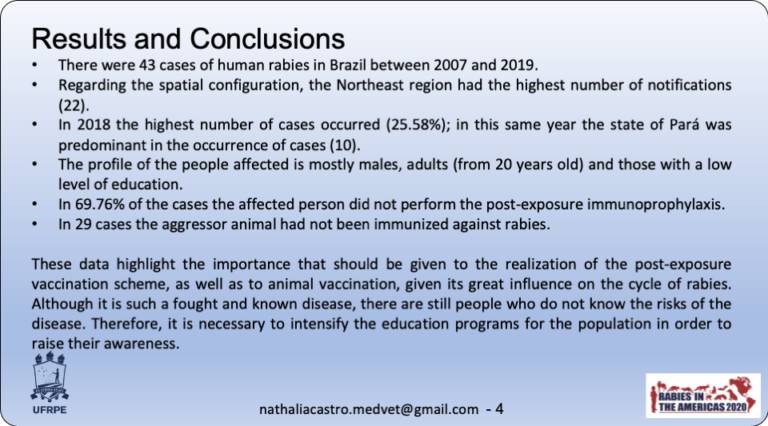
PP077 Clinical-epidemiological profile of antirabic care with regard to indigenous race/color in the State of Pará, Amazonian Region, Brazil, from 2007 to 2019
Neuder Wesley França da Silva
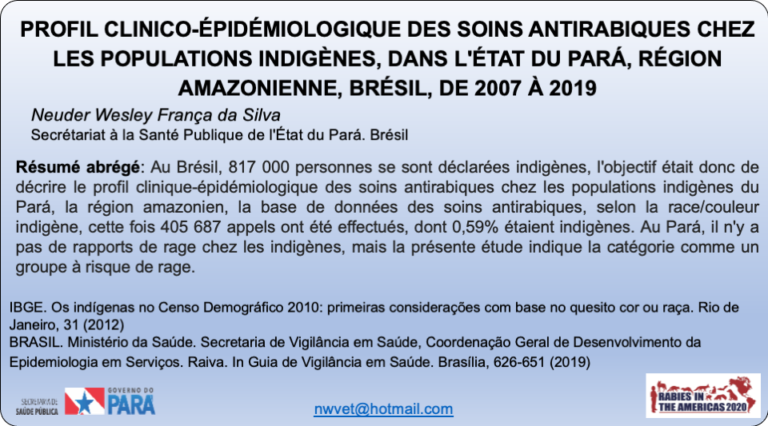
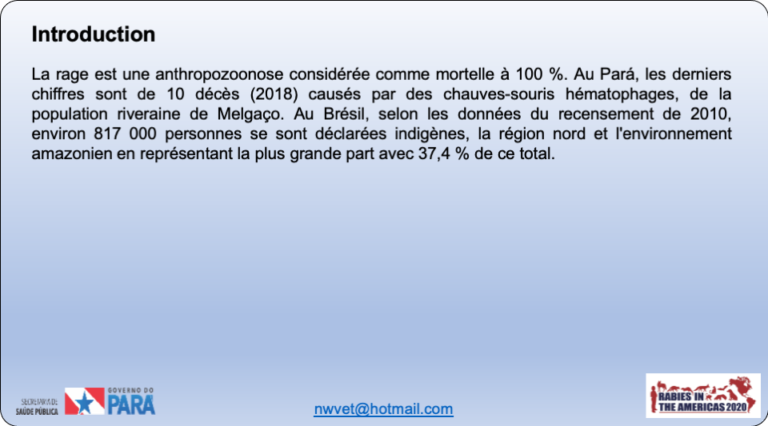
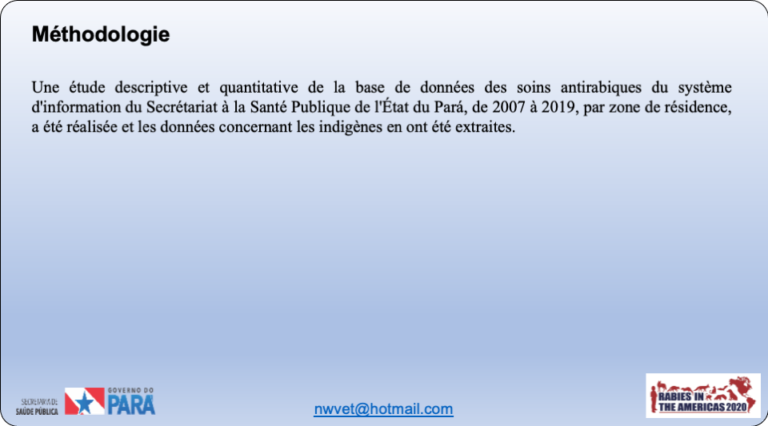
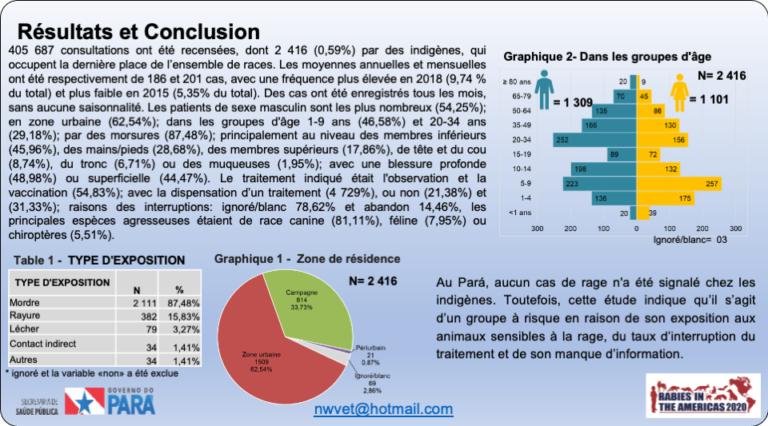
PP078 Human anti-rabies care: epidemiological analysis of the grievance and study of the population’s understanding of the behavior of aggressor animals
Paula da Fonseca Apolinário
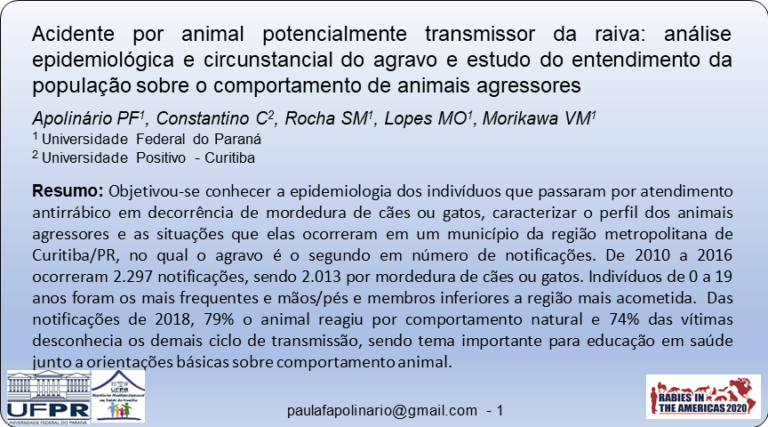
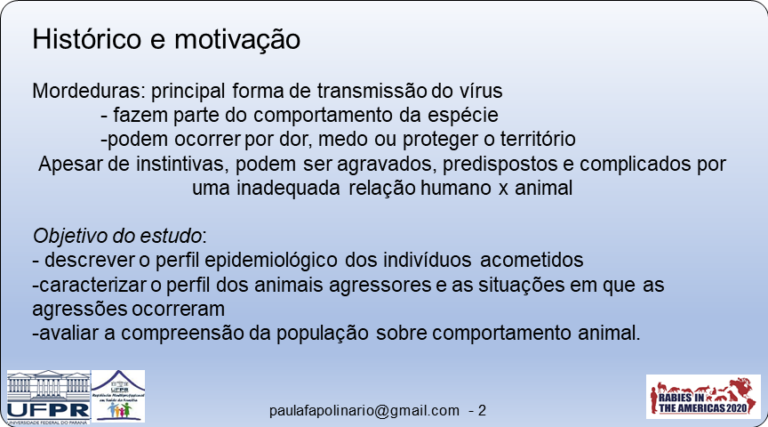
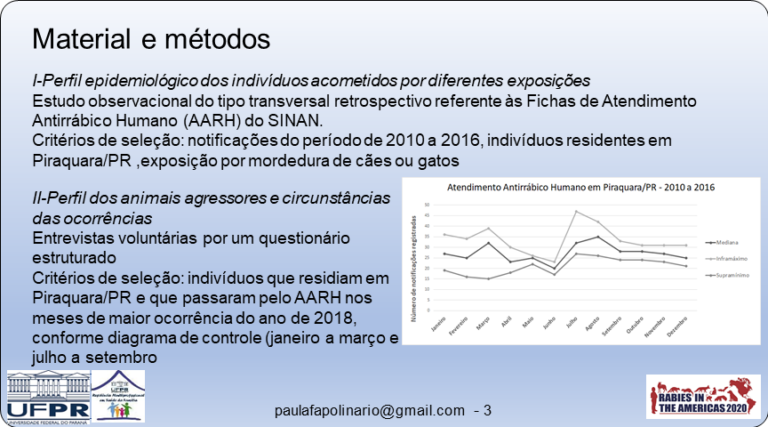
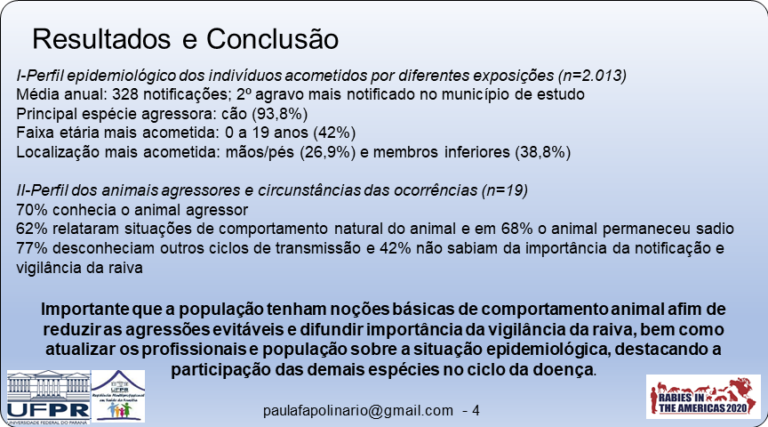
PP079 Primordial methods of prophylaxis for human rabies in Brazil
Thomas Rosa Menegazzi
Pathogenesis & Immunology
PP080 Klrb1b selectively upregulated in brain gene of mice infected with V3 (Desmodus rotundus variant) and not V2 (dog variant) street rabies virus
Camila Appolinario